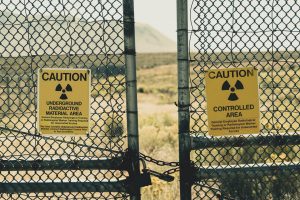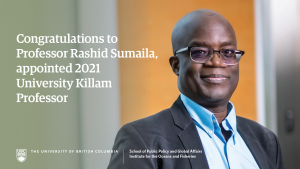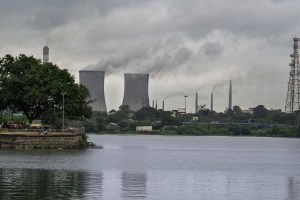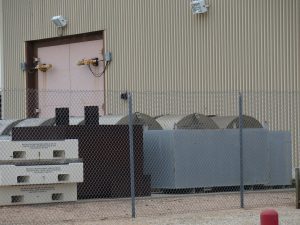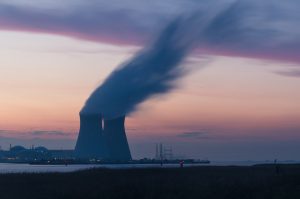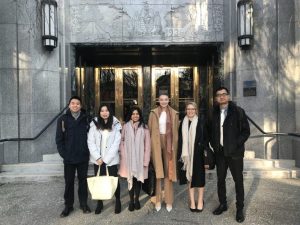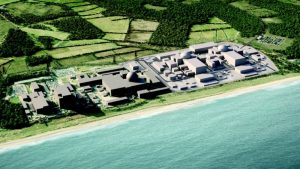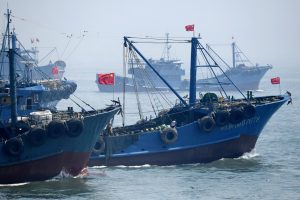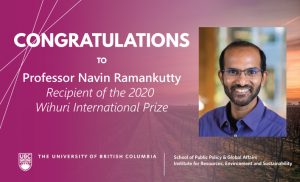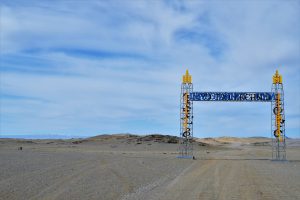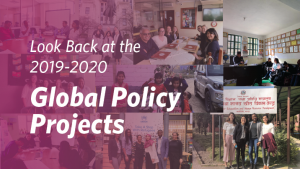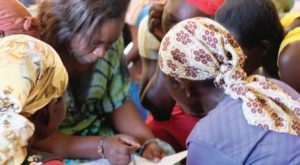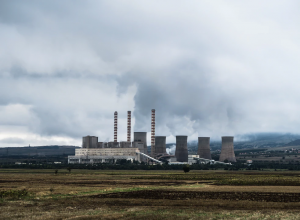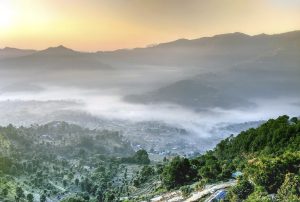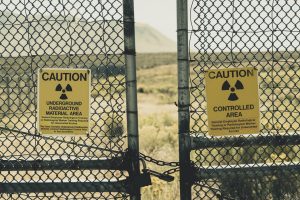Oil and the Islamic State: Revisiting “Resource Wars” Arguments in Light of ISIS Operations and State-Making Attempts
Professor Philippe Le Billon (SPPGA; Geography) reviews key scholarly arguments concerning the relationship between natural resources and armed groups, and examines the interrelationship between oil, armed conflict and ISIS.
Reconciling Violence: Policing the Politics of Recognition
Over the course of several months in 2018, more than 240 people were arrested in Burnaby, BC, Canada for disrupting the expansion of the Trans Mountain Pipeline. Professor Philippe Le Billon (SPPGA; Geography) examines what the discrepancies in police tactics teach us about logics of settler colonial law, authority, and violence.
Gorilla Radio with Chris Cook, Dimitri Lascaris, M.V. Ramana
Listen to Gorilla Radio’s podcast with SPPGA Prof. Ramana on how the Liberal government’s funding of Small Modular Reactors (SMRs) is a pipe dream. He cites the lengthy time, cost, and the economic disadvantage of switching to SMRs as the main reasons for its infeasibility.
UN Committee Rebukes Canada for Failing to Get Indigenous Peoples’ Consent for Industrial Projects
In response to a letter regarding Canada’s failure to comply with the UNDRIP, Professor Sheryl Lightfoot (SPPGA & UBC Political Science) urges the federal government to take advice from the UN’s Expert Mechanism on the Rights of Indigenous Peoples.
Former U.S. Regulator Questions Small Nuclear Reactor Technology
In an article about small nuclear reactor technology, SPPGA Director Allison Macfarlane raises doubts about the feasibility of storage, alluding to the complexity of the shorter-term radioactivity of nuclear waste.
Professor Rashid Sumaila appointed University Killam Professor
We are pleased to congratulate Dr. Rashid Sumaila, Professor in the School of Public Policy and Global Affairs and the Institute for the Oceans and Fisheries, on his appointment as University Killam Professor
New Small Modular Reactor Action Plan a Key Step for New Technology’s Growth amid ‘Incredible Demand,’ Says Industry Group
Canada’s new Small Modular Nuclear Reactor Action Plan has UBC experts doubtful that paper designs will be economical or environmentally viable in the long run. More from Prof. Ramana, Prof. Nadja Kunz (SPPGA & UBC Mining) and MPPGA Alumna Sarah Froese.
Drum Breach: Operational Temporalities, Error Politics and WIPP’s Kitty Litter Nuclear Waste Accident
In 2014, at the WIPP transuranic waste repository in New Mexico, a chemical reaction with kitty litter caused a drum to ignite. Vincent Ialenti delves into how overambitious political initiatives, fraught labor relationships, financialized subcontracting arrangements and more set the stage for a radiological disaster (Journal access).
Biden’s Pick for Energy Secretary Could Mean Trouble for Alberta’s Oilpatch, Experts Say
Biden’s pick for energy secretary could mean trouble for Alberta’s oilpatch, experts say. SPPGA Prof George Hoberg weighs in.
COVID-19 Research by MPPGA Summer Research Assistants
Over summer 2020, MPPGA students conducted research related to the Covid-19 pandemic with UBC professors and produced infographics that illustrate their research question, main findings, and policy relevance. Learn more.
Success of Twin Metals Copper Mine Hinges on Holding Every Last Drop of Tainted Water
With the design of the proposed Twin Metals copper-nickel mine under review, Professor Nadja Kunz (SPPGA & UBC Mining Engineering) cautions of the difficulty of achieving an accurate “water balance” given its sensitivity.
Towards a Broadened View of Water Security in Mining Regions
With ore grade decline, mine closure concerns, and increased risks of flooding and water scarcity, the mining sector needs to focus their attention on the importance of water issues, writes Professor Nadja Kunz (SPPGA & UBC Mining).
MPPGA Students’ Global Policy Project Fieldwork Now Underway
The 2020-2021 Global Policy Projects are now underway, with UBC Master of Public Policy and Global Affairs (MPPGA) student teams conducting virtual fieldwork with clients on seven different projects in Canada, the United States, Singapore, and Nepal throughout December 2020. The fieldwork component is a defining piece of UBC’s professional MPPGA curriculum. Led by School […]
Questions Abound about New Brunswick’s Embrace of Small Nuclear Reactors
Professor Ramana critiques the business case for small modular reactors as politicians look to nuclear power as the future in New Brunswick.
Atomic Heat in Small Packages Gives Big Industry a Climate Option
Today, the nuclear industry is thinking small, but whether there will be a market after they foot the bill remains to be seen, asserts Professor Ramana.
Understanding and Responding to the Environmental Human Rights Defenders Crisis
Professor Philippe Le Billon (SPPGA; UBC Geography), David Boyd (SPPGA; IRES) and others investigate the losses and risks faced by Indigenous and local communities who are involved in biodiversity conservation.
China’s Monster Fishing Fleet
“Though not alone in its destructive practices, Beijing’s rapacious fleet causes humanitarian disasters and has a unique military mission.” Professor Rashid Sumaila (SPPGA & UBC Oceans) speaks on the vast amount of capital being pumped into China’s fishing subsidies.
Ocean Witness Season 2 Episode 1: Sanctuaries
Greenpeace’s documentary series, Ocean Witness, invites Professor Rashid Sumaila (SPPGA & UBC Oceans) to share “moments of magic and heartbreak from land and sea, investigating threats to our oceans, and sharing solutions for what we can do to help”.
No Time for Empty Promises: Europe Must Lead on Harmful Fisheries Subsidies
“The European Union (EU) claims to be a leader in sustainability and multilateral cooperation. But so far in the World Trade Organisation’s fisheries subsidies talks, the EU has failed to lead,” says Professor Rashid Sumaila (SPPGA; UBC Oceans) as deadline for talks loom.
Lessons from Nuclear Waste Management Could Help Us Move Beyond Shortsighted Climate Thinking
“Before we were worried about fossil fuels and plastic pollution, nuclear waste stretched our minds to think about our place in geological time.” Vincent Ialenti proposes that considering the magnitude of humanity’s impact on the planet is now our collective responsibility.
Movements Shaping Climate Futures: A Systematic Mapping of Protests Against Fossil Fuel and Low-carbon Energy Projects
In a comprehensive co-authored study, Professor Philippe Le Billon (SPPGA; UBC Geography) looks at a systematic mapping of 649 cases of resistance movements to energy-related projects.
WTO Aiming to Net Fishing Deal
As World Trade Organization fisheries negotiations and talk of eliminating subsidies ramp up, Professor Rashid Sumaila (SPPGA; UBC Oceans) was quoted on global fisheries subsidy amounts and the portion used to build fishing fleets.
Media Mentions: Professor Ramana Publishes Eyes Wide Shut, a Report on Problems with Small-Scale Nuclear Plants
Professor Ramana, a leading world expert on small modular reactors (SMRs), issued a report warning that more than 30 municipalities in Utah, Idaho, Nevada, New Mexico and California participating in the Utah Associated Municipal Power Systems (UAMPS) small modular nuclear project promoted by Oregon-based NuScale Power could end up being left holding the bag due […]
Spotlight on MPPGA Alumni Careers – Series Compilation
During our Spotlight on MPPGA Alumni Careers series, we showcased ten Master of Public Policy and Global Affairs (MPPGA) alumni who are committed to addressing the urgent and complex public policy challenges facing the world. Learn more about them in our series compilation.
Congratulations to the 2020 Simons Award Recipients!
Five UBC students have been selected by the Liu Institute for Global Issues in the UBC School of Public Policy and Global Affairs for the Simons Award in Nuclear Disarmament and Global Security. The award is funded by an endowment provided by the Simons Foundation.
Ramana and Schacherl: Why the Liberals’ Nuclear Power Plan is a Pipe Dream
SPPGA Professor Ramana discusses the economic and environmental feasibility of the federal government’s plan for small modular nuclear reactors in Canada and argues that SMRs have no place in the plan to mitigate climate change. Read more at The Ottawa Citizen.
Global Public Policy Project Reflection: Applying an Equity Lens with the City of Vancouver
A team of Master of Public Policy and Global Affairs (MPPGA) students at the University of British Columbia published a reflection of their immersive Global Policy Project that took place in 2019 and 2020 with their client, the City of Vancouver – Planning, Urban Design and Sustainability Department. Read the reflection below: Global Public Policy Project […]
Spotlight on MPPGA Alumni Careers – Nathan Seef
As part of our Spotlight on MPPGA Alumni Careers, meet Nathan Seef who is now a Policy Analyst within the Trade and Investment team for the Low-Carbon Energy Sector at Natural Resources Canada in Ottawa.
7 Ways to Bridge the Blue Finance Gap to Protect the Oceans
Professor Rashid Sumaila (SPPGA & UBC Institute for the Oceans and Fisheries) discusses the benefits of investing into sustainable ocean economy initiatives to reduce the ocean-specific biodiversity finance gaps and identifies 7 key actions to strengthen the SOE. Read more at GreenBiz.
The Nuclear Industry Dreams Small
SPPGA Professor Ramana is skeptical of the case for small modular reactors, stating that it would be reversing the economies of scale. Listen here at BBC Sounds at the 12:35 mark.
Spotlight on MPPGA Alumni Careers – Sebastian Jarrin Grijalba
As part of our Spotlight on MPPGA Alumni Careers series, meet Sebastian Jarrin Grijalba who is currently working as a Program Officer with the Supporting the Ministry of Mines Ethiopia project with the Canadian International Resources and Development Institute.
China Has a Golden Opportunity to Show Global Leadership
In an opinion piece in the South China Morning Post, SPPGA Professor Kristen Hopewell talks of the opportunity for China to emerge as a new leader and key player in an ambitious WTO fisheries deal, representing their commitment to the liberal trading order. Read more.
New START Extension Positive but Strategic Stability Depends on US Election Outcome
The potential extension of the New START arms reduction deal between the United States and Russia is a positive development but the deal still very much depends on the outcome of the US presidential election, asserts Professor Ramana for Urdu Point.
Can Nuclear Replace Coal in the West? Over 20 Utah Cities Are Betting on It Despite the Risks
Weighing in on a small modular nuclear reactor in Utah, SPPGA Professor Ramana says that an investment would put cities in a fixed payment system despite fluctuating prices of the power market for the next 40 years, shaping up to be a potentially bad investment. Read more at KUER 90.1.
SPPGA Welcomes Vincent Ialenti, Postdoctoral Research Fellow
The School of Public Policy and Global Affairs welcomes Vincent Ialenti as a MacArthur Foundation funded Postdoctoral Research Fellow working with SPPGA Director and Professor Allison Macfarlane.
Professor Navin Ramankutty Awarded the Wihuri International Prize
UBC Professor Navin Ramankutty (School of Public Policy and Global Affairs; Institute for Resources, Environment and Sustainability) has been awarded the prestigious Wihuri International Prize in recognition of his long-standing work on sustainable global food systems.
Intervention by International Organizations in Regime Complexes
Read Professor Matias Margulis’ (SPPGA/Land and Food Systems) latest publication on how international organizations employ intervention strategies to influence decision-making in the regime complex for food security. More at Springer Open.
Call for Applications: 2020 Simons Award in Nuclear Disarmament and Global Security
The Liu Institute for Global Issues at SPPGA invites applications to the 2020 Simons Award from UBC students intending to undertake research on topics related to nuclear disarmament and global security. Deadline is October 15!
300 Chinese Fishing Ships Off South America Coast Raise Food Security Worries
With the waters near China mostly depleted of fish, Chinese fishing ships are incentivized to conduct “illegal, unreported, and unregulated (IUU)” fishing activities in foreign waters, according to Professor Rashid Sumaila (SPPGA & UBC Institute for the Oceans and Fisheries). Read more at Voice of America.
No Business Case for New Nuclear Reactors in New Brunswick
SPPGA Professor Ramana, the Simons Chair in Disarmament, Global and Human Security, disputes what small modular nuclear reactor advocates claim to be a prospective business opportunity in New Brunswick. Read more at NB Media Co-op.
Scientists Warn That Indian, Pakistani Nuclear Plants Could Get Wrecked by Tsunamis
Fearful of a fate similar to the Fukushima nuclear disasters, SPPGA Professor Ramana discusses the dangers of siting nuclear reactors along India and Pakistan’s coastline, areas prone to natural disasters. Read more at Futurism.
Global Policy Engagement: A Look Back at the 2019-2020 MPPGA Global Policy Projects
Eight second year student teams completed their immersive Global Policy Projects in various regions around the world throughout 2019 and culminating in spring 2020. The Global Policy Project is a core component of UBC’s professional Master of Public Policy and Global Affairs (MPPGA) program.
Celebrating Achievements: CIRDI’s Year in Review 2019/20 Launched
The Canadian International Resources and Development Institute has announced the release of its Year in Review, highlighting the Institute’s biggest achievements and initiatives from 2019-2020.
Fraser Sockeye Fishery Could Be Shut down for Years
Following low prices and demand for wild salmon during the pandemic, commercial fishermen are faced with another hurdle. Fraser River sockeye stocks appear to be collapsing – for real this time. Professor Rashid Sumaila (SPPGA & Institute for the Oceans and Fisheries) is cited in Business in Vancouver.
Closing Canadian Fisheries Would Help Rebuild Stocks and Lead to Economic Gains: Study
A study conducted by a team of marine researchers found that temporarily stopping Canadian fishing activity would lead to gains of up to 10 times above the status quo after 30 years. Co-author Professor Rashid Sumaila (SPPGA & Institute for the Oceans and Fisheries) has more at The Narwhal.
Small Modular Reactors Aren’t the Energy Answer for Remote Communities and Mines
The energy costs associated with small modular reactors exceed those of diesel-based electricity. Policy-makers should focus on renewables, argue SPPGA Professor Ramana, Professor Nadja Kunz (SPPGA & Mining Engineering), and MPPGA alumna Sarah Froese. Read the article in Policy Options.
Energy, Injustice & the Green New Deal
One result of pandemic-driven economic shutdowns around the world is a change in patterns of energy production and use. However, SPPGA Professor Ramana, Sara Nelson (Simons Postdoctoral Fellow), and Lindah Ddamba (MPPGA student) point out that these changes will not automatically result in a green energy transition. More at Progressive International.
Closing the Gap: Financing the Transition Towards an Inclusive Blue Economy IIED Webinar
Timed to coincide with World Oceans Day 2020, this online event that featured Professor Rashid Sumaila (SPPGA; The Institute for the Oceans and Fisheries) asked how flows can be maximised and complementary in meeting the financing gap? What are the advantages and risks? And how might the coronavirus pandemic impact the transition?
Q&A: Rebuilding Depleted Canadian Fish Stocks Is Good Business
Fish populations in Canada need to be urgently rebuilt, but short-term socio-economic concerns often slow down or even prevent the process of rebuilding stocks, declares a new study. UBC news interviews authors, including Professor Rashid Sumaila (SPPGA & Institute for the Oceans and Fisheries), on findings.
Smaller, Cheaper Reactor Aims to Revive Nuclear Industry, but Design Problems Raise Safety Concerns
SPPGA Professor Ramana asserts that a tech company has oversold the claim that its small modular reactors are “walk-away safe”. More at Science Magazine.
MPPGA Student Jessika Woroniak Awarded James Robert Thompson Fellowship
MPPGA student, Jessika Woroniak, has received the James Robert Thompson Fellowship, an award made to students planning a career related to preservation of the natural environment. Learn more about what this award means to her.
Economic Implications of Protecting 30% World’s Land
A report has found evidence that at least 30 per cent of the planet’s land and ocean must be protected to address the alarming collapse of the natural world, which now threatens up to one million species with extinction. Professor Rashid Sumaila (SPPGA & Institute for the Oceans and Fisheries) is cited in The Guardian Nigeria.
Struggles for Land: Comparing Resistance Movements Against Agro-Industrial and Mining Investment Projects
Investments in large-scale land-based projects have increased over the past two decades, with a concomitant rise in community-level resistance. Professor Philippe Le Billon (SPPGA; Geography) co-authors this paper comparing movements resisting either agro-industrial or mining projects.
Mines Energy Future Podcast
SPPGA Professor Ramana provides an in-depth look at small modular nuclear reactors, their history and potential, on a podcast published by the Payne Institute for Public Policy, Colorado School of Mines.
Unrooted Responses: Addressing Violence Against Environmental and Land Defenders
Professor Philippe Le Billon (SPPGA; Geography) co-authors this study considering how participants in community forestry and development organizations respond to forest-related violence.
Germany Gets Both: No Nuclear, Less CO2
In this opinion article for Energy Intelligence, SPPGA Professor Ramana writes on Germany’s recent coal-fired power plant, addressing concerns around increased carbon emissions and the compatibility between nuclear phaseout and climate change mitigation.
Professor Ramana Joins CELA in Fight for Responsible Energy Development in Canada
Working closely with the Canadian Environmental Law Association (CELA), SPPGA Professor Ramana spearheads a submission to the Canadian Nuclear Safety Commission in regards to an Environmental Assessment for a Micro Modular Reactor project in New Brunswick.
Drug Trafficking Could Be Putting ‘fragile Fisheries’ at Risk, Study Says
A new study found that drug trafficking on fishing vessels accounts for about 15% of the global retail value of illicit drugs. Professor Philippe Le Billon (SPPGA & UBC Geography) says that the global pandemic may exacerbate the problem. More from Mongabay.
NMIMS-FPJ Webinar: Nuclear Energy Not for Countries Looking at Economic Development
Did you know that it costs somewhere between 10-15 billion USD to build a nuclear power plant? If India is looking at development by increasing power consumption, it is essential that it opts for cheaper forms of energy, states SPPGA Professor Ramana. Learn more about ‘The future of nuclear energy’ webinar at Free Press Journal.
SPPGA 2019-2020 Annual Report
Learn more about the unique strengths and activities of UBC’s School of Public Policy and Global Affairs and our Master of Public Policy and Global Affairs program in our 2019-2020 Annual Report.
The Big Debate: Should Nuclear Energy Be Part of a Green New Deal?
We must reduce the burning of fossil fuels to save our planet — but should nuclear energy be part of the solution? SPPGA Professor Ramana and MPPGA Alumni Schyler Edmundson take part in The Toronto Star’s The Big Debate.
SPPGA Welcomes Sara Nelson, Simons Postdoctoral Fellow
SPPGA welcomes Sara Nelson, Simons Postdoctoral Fellow, who will be working with Professor M. V. Ramana, Simons Chair in Disarmament, Global and Human Security.
No Market for Australian Uranium in India
SPPGA Professor Ramana and MPPGA alumna Cassandra Jeffery co-authored an article for the East Asia Forum examining the demand of Australian uranium in the Indian market. Considering India’s greater focus on its blooming renewable energy sector, a large order for Australia’s uranium is unlikely.
When Old Age Catches Up, Even Nuclear Weapons Go into Retirement
The world’s stockpile of nuclear weapons—estimated at over 13,400 at the beginning of 2020 – have a least one thing in common with humans: they are “retired” when they reach old age. But what happens to these “retired” weapons? SPPGA Professor Ramana speaks on retiring nuclear arsenals to the Inter Press Service News Agency.
Professor Rashid Sumaila Published in Rebeldes del Mar
“The ocean is our life.” Professor Rashid Sumaila (SPPGA & UBC Institute for the Oceans and Fisheries) contributes to Rebeldes del Mar, a book that recognizes the “courage, fight, and creativity” of those who confront the questions and paradigms pertaining to today’s fisheries and ocean sustainability.
Assuring Destruction Forever: 2020 Edition
“As of early 2020, the nuclear-armed states are estimated to possess approximately 13,410 nuclear weapons.” Reaching Critical Will’s report, Assuring destruction forever: 2020 edition, invites experts to speak on national nuclear weapon programmes.
Why Is Ontario Spending Billions On Nuclear Energy When Cheap Renewables Are Available?
Read this article by Cassandra Jeffrey, MPPGA graduate and recipient of the 2019 Simons Award in Nuclear Disarmament and Global Security, who analyzes Ontario’s misdirected priorities for the electricity sector and traces these to the decision making structures that are based on unsustainable and decaying frameworks.
Fishy Business
Our seas are under pressure. Overfishing, acidity, pollution are decimating fish stocks. We all feel it is bad – but how bad is it really? Join Professor Rashid Sumaila (SPPGA & UBC Institute for the Oceans) as he sits down with Highgrade Media Production’s podcast to discuss the big question of fishing sustainability.
U.S. Withdrawal from Open Skies Treaty Irks NATO Allies, Casts Doubt on New START
U.S. President Trump’s sudden decision to withdraw from the Open Skies Treaty has left its NATO allies surprised. In effect since 2002, the agreement has been a crucial tool for guaranteeing arms control and maintaining global stability. Washington’s withdrawal will have significant implications on international cooperation against military and nuclear risks, says SPPGA Professor Ramana in this Sputnik article.
Slow, Steady Progress for Two U.S. Nuclear Power Projects
Should we still rely on outdated and potentially catastrophic technology for energy? This is the question of the hour as work for two U.S. nuclear power projects are underway. SPPGA Professor Ramana speaks in IEEE Spectrum.
U.S. Department of Energy Rushes to Build Advanced New Nuclear Reactors
The U.S. Department of Energy (DOE) has announced plans to invest in new prototype nuclear reactors as a means to revitalize the country’s nuclear industry. SPPGA Professor Ramana expresses his opinions on the DOE’s decision in this Science article, raising concerns around capital expenses and public apprehension towards radioactivity.
Command and Control of India’s Nuclear Arsenal
Despite long-standing debate around the command and control of India’s nuclear weapons, few details about the structure and organization of such a system exist publicly. SPPGA Professor Ramana and Postdoctoral fellow Lauren Borja dive into the evolution of India’s nuclear arsenal, infrastructure and its emerging challenges.
UBC Ranks Seventh Globally in Impact: Times Higher Education
UBC placed first in Canada and seventh globally out of more than 850 participating institutions from 89 countries in the 2020 Times Higher Education subject rankings, which assesses universities against the UN Sustainable Development Goals. Learn more about how SPPGA’s research connects to action on climate change and protecting our land and water environments.
Toward ‘Good Process’ in Regulatory Reviews: Is Canada’s New System Any Better Than the Old?
SPPGA Professor George Hoberg and MPPGA Alumna Sarah Froese co-authored an article that explores the features of a ‘good’ regulatory review process in the context of Canadian climate and energy, drawing from environmental justice and sociological process literature. The research findings aim to inform legislators and stakeholders globally on the establishment and implementation of these processes.
What Constitutes “Local”? Exploring How to Create Local Value from Mining in Rural Mongolia
In the remote areas, such as southwestern Mongolia, with very few local businesses, what constitutes “local” procurement? Now in its third year, this research partnership provides a unique opportunity to learn about effective approaches to public engagement when designing a mine. Stay tuned for details.
Moscow-Washington Tensions to Further Escalate If US Quits Open Skies Treaty
Washington’s prospective withdrawal from the 28-years old Open Skies Treaty will likely prompt Russiato follow suit. SPPGA Professor Ramana addresses the increasingly tense relations between the two world powers. Read more at Sputnik.
Nuclear Safety and Security During a Pandemic
With SPPGA Professor Ramana as one of its co-writers, the International Nuclear Risk Assessment Group (INRAG) has published its first working paper dealing with Covid-19 and its impact on the nuclear industry.
A Dirty Battle for a Nuclear Bailout in Ohio
SPPGA Professor Ramana delves into how subsidies are being used to drive profits in some energy corporations. Read more at Bulletin of the Atomic Scientists.
Global Supply Agreement Could Address Collapsing Oil Markets and Climate Concerns
Canada is in a unique position to take on a leadership role in calling for a global supply-side agreement for fossil fuels, linked with emissions targets, notes Professor Philippe Le Billon (SPPGA & UBC Geography). Read the full article at Institute for Research on Public Policy.
Opinion: A Perverse Invitation to Nuclear Disasters
Despite the high risk and strong reasons against, various states continue to introduce legislation to bail out aging nuclear power plants and continue its use. SPPGA Professor Ramana and MPPGA student Cassandra Jeffrey warn against doing so in a co-written article with Traverse City Record-Eagle.





